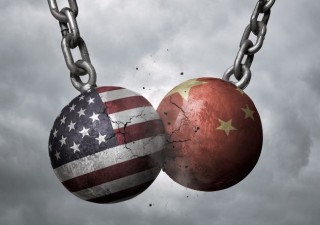In 2015, Capital opened in Suzhou, Jiangsu Province, renting nine stores to Yilang to sell products from brands such as Fendi and Loewe.
A year later, Fendi Adele S.r.l., the owner of Fendi’s trademark, discovered that one of those shops used its trademark on their store signs, packages and receipts without permission. Capital also included “Fendi” on brochures, signs and articles on WeChat.
Fendi Adele then sued for ¥1 million (US$154,000) in damages.
Yilang officials said the products it sold were not counterfeit so it was reasonable to use the trademark. Capital claimed it had not broken the law because the “Fendi” mark was used to inform customers about the source of the products.
A local district-level court ruled in favour of the defendants initially before Fendi Adele appealed to a higher court.
In 2017, the Shanghai Intellectual Property Court reversed the original judgment, ruling that Yilang and Capital had infringed on Fendi’s trademark and should pay ¥350,000 in penalties. The court said Yilang’s use of “Fendi” on its shop sign was misleading.
Yilang requested a retrial immediately.
Yet, the high court said there are two sales models for luxury goods — selling products in brand-operated stores or exclusive shops managed by the brand, and selling products in integrated stores run by other companies with permission of the brand or brands. Therefore, a brand’s trademark should not be used on an integrated store’s shop sign that sells products from multiple brands.
The court added that Capital helped Yilang advertise its products and referred to Yilang’s store as “Fendi,” making it culpable as well.
“I agree with the ruling since the courts have taken all the related situations of both parties into consideration,” Li says. “To prevent well-known marks from being misused, the owners of well-known marks should first use their marks properly, such as never use the trademarks as descriptive words for that kind of products so as to avoid the mark losing its distinctiveness through improper use. It usually will be difficult for trademarks which are less distinctive to be effectively enforced. Secondly, obtaining sufficient protection for the trademarks in China is still one of the most important matters for the owners. To enforce the right according to the laws in China, existence of effective legal right in China should be one of the preconditions. According to Chinese Trademark Law, registered trademarks which are well-known enjoy broader protection scope and are easier to be enforced compared with unregistered trademarks which are well-known in China. For well-known trademarks which haven’t been registered in China, the protection is just in respect of identical or similar goods. For registered trademarks which are well-known, the protection can be extended to dissimilar goods. Therefore, if the well-known trademarks have been registered in China, the owners are possible to enforce their trademark rights on dissimilar goods. Furthermore, if the well-known trademarks have been registered not only on the owners’ products but also on goods that are dissimilar to their products, the enforcement of their rights in respect of these dissimilar goods will be much easier and the burden for them to prove the famous degree of their trademarks will be much lighter. As China is a first-file jurisdiction, for well-known brand owners, besides preserving use and promotion evidences in proving the well-known status of their marks, they still need to pay sufficient attention to whether they have obtained sufficient registrations for their trademarks in China.”
Johnny Chan








